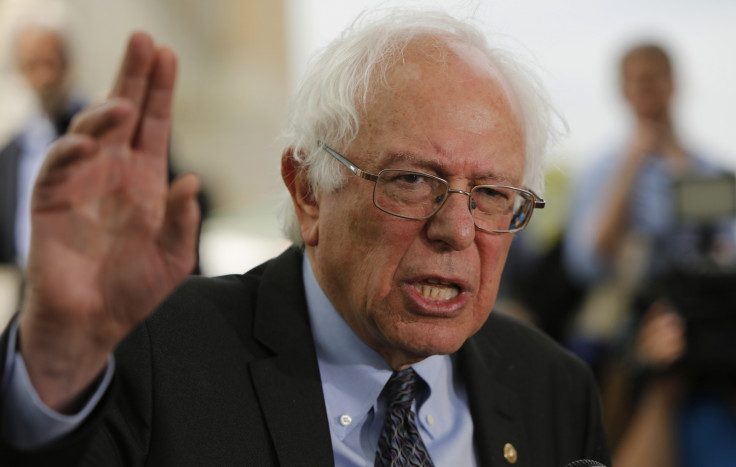US election 2016: Hillary Clinton welcomes Bernie Sanders to Democratic presidential primaries

Former secretary of state Hillary Clinton welcomed fellow Democratic candidate Bernie Sanders to the presidential primary on 30 April on Twitter. The Democratic powerhouse tweeted, "I agree with Bernie. Focus must be on helping America's middle class. GOP would hold them back. I welcome him to the race."
I agree with Bernie. Focus must be on helping America's middle class. GOP would hold them back. I welcome him to the race. –H
— Hillary Clinton (@HillaryClinton) April 30, 2015Shortly afterwards, the Vermont senator replied, "Thanks @HillaryClinton. Looking forward to debating the big issues: income inequality, climate change & getting big money out of politics."
Thanks @HillaryClinton. Looking forward to debating the big issues: income inequality, climate change & getting big money out of politics.
— Bernie Sanders (@BernieSanders) April 30, 2015Sanders unofficially announced his candidacy on 29 April to several members of the press. "I believe (voters) want a fundamental change so that government works for ordinary Americans and not just billionaires," the 73-year-old said. He held a press conference on 30 April officially announcing his bid for president.
According to Politico, the longest serving member of Congress said he is running because, "This country today, in my view, has more serious crises than any time since the Great Depression." He added that billionaires were "literally able to buy elections and candidates."
The self-described independent socialist has a hard road ahead of him. In the latest Public Policy Poll, Sanders earns 14% support from Democratic voters, while Clinton nabs 62%. The gap widens in the most recent CNN/ORC poll, where Sanders scored 5% to Clinton's 69%.
However, the senator's policies, which lean liberal, enjoys wide support. Sanders has partnered up with liberal darling Massachusetts Senator Elizabeth Warren in calling for stricter regulations of Wall Street and in opposition to the Trans-Pacific Partnership trade deal.
Sanders partnership with Warren will likely force the Clinton campaign to address several issues, or at least lean towards more liberal policies.
As previously reported by IBTimes UK, Sanders supports free university tuition, higher taxes on the wealthy, government-run healthcare, publicly funded elections and a $1tn (£650bn) programme to rebuild national roads and bridges.
© Copyright IBTimes 2024. All rights reserved.






